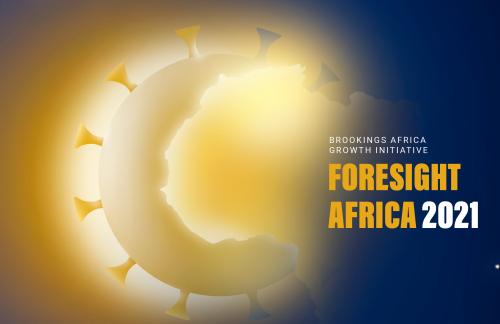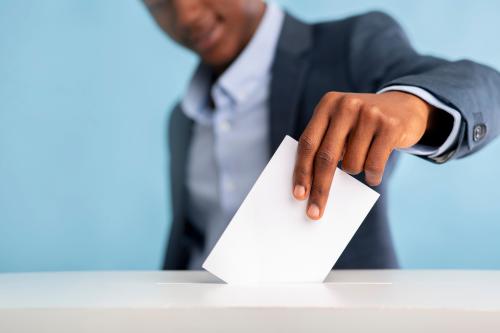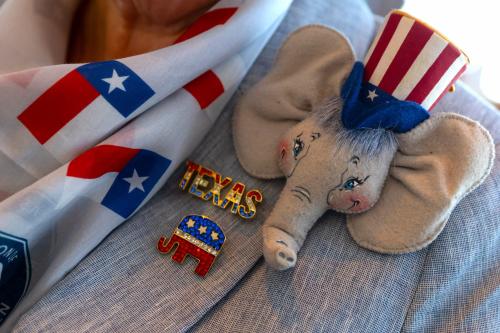Natural resource outlook
In a report released Wednesday, the International Energy Agency (IEA) reduced their earlier 2021 estimates of oil demand by 0.3 million barrels/day (mb/d). According to the report, global resurgence of the COVID-19 virus has stymied fuel sales, thereby dampening forecasts for global oil demand in 2021. IEA initially predicted that global demand for oil would rise 5.8 mb/d in 2021 after contracting by 8.8 mb/d in 2020. However, after the rise in COVID-19 cases, the report now predicts that annual oil demand will rise by 5.5 mb/d in 2021 compared to 2020, following a contraction in demand of 8.8 mb/d in 2020. The agency expects strong growth in oil demand in the second half of the year, contingent upon control of the virus, widespread vaccination, and the subsequent stimulation of economic activity.
A slew of mining deals were announced this week across the continent. The Tanzanian government signed an agreement with the U.K. mining firm Kabanga Nickel Limited to develop the Kabanga nickel project. The Kabanga region is estimated to contain more than 1.52 million tons of nickel and considered to be the world’s largest development ready nickel-sulfide deposit. Vale, a Brazilian mining firm, announced its plan to divest from its unprofitable Mozambiquan coal operations, and rail and port infrastructure projects. The Zambian government’s mining investment arm, ZCCM-IH, struck a $1.5 billion deal with private mining company Glencore for a 73 percent majority stake in the Mopani Copper Mines. The deal emerged after Zambia threatened to revoke Glencore’s mining license last April, following Glencore’s plans to shutter the mines, which would displace 15,000 workers.
Museveni wins controversial election; Central African Republic certifies election
Electoral officials have named long-serving Ugandan President Yoweri Museveni the winner of last week’s election—his sixth presidential term—despite claims of irregularities, voter fraud, and harassment. As of Friday, runner-up Bobi Wine remained under house arrest. Earlier this week, U.S. Ambassador Natalie E. Brown’s attempt to visit Wine drew ire from Ugandan authorities, who claimed Brown was trying to “subvert” the result of the election. The election itself has drawn criticism from several countries. The U.S. Embassy in Uganda in a statement described the elections as “marred by the harassment of the opposition candidates … and suppression of the media.” The statement was made in reference to the Ugandan government’s internet shutdown during the election, which caused many polling stations to use manual rather than automatic ballot machines. The shutdown had economic consequences too, as it cost e-commerce companies sorely needed revenue. As of this writing, the U.S. Department of State and the European Union have yet to congratulate Museveni on his victory. Museveni has denied allegations of fraud, calling the election the “most cheating-free” in the nation’s history.
Earlier this week, the constitutional court of the Central African Republic confirmed President Faustin-Archange Touadéra as the winner of last month’s presidential election. Just days into Touadéra’s new term, the Central African Republic announced a 15-day state of emergency after rebel groups—who control two-thirds of the country—surrounded the capital of Bangui and attempted to block transportation in and out of the capital in dispute of the elections. The state of emergency permits authorities to make arrests without the guidance of national prosecutors.
COVID-19 and vaccine update
Following a rapid rise in cases across the continent, Africa’s COVID-19 fatality rate has surpassed the global average of 2.2 percent to 2.5 percent. Also in the past week, the continent registered 207,000 new cases. Notably, nearly half were identified in South Africa. According to experts, Africa had been able to avoid high numbers of cases thanks to its young population and low testing rates. Africa Centers for Disease Control and Prevention head John Nkengasong expressed concern yesterday that the new coronavirus variant responsible for the rise in cases in South Africa is now spreading to other parts of the continent.
Zimbabwe President Emmerson Mnangagwa’s spokesperson announced that Minister of Foreign Affairs Sibusiso Moyo succumbed to COVID-19 on Wednesday. Moyo rose to fame after announcing to the public that the Zimbabwe National Army military had placed Robert Mugabe under house arrest, the first step in the toppling of Mugabe’s longstanding regime. Meanwhile, on Thursday, President Cyril Ramaphosa mourned the loss of 62-year-old cabinet minister and adviser Jackson Mthembu, who tested positive for COVID-19 last week. During the pandemic, Mthembu had become the public face of South Africa’s efforts to stave off the virus.
Also this week, the African Export-Import Bank (Afreximbank) released a report citing that African countries receiving the more than 270 million doses secured by the African Union outside the COVAX vaccine facility will likely pay between $3 and $10 per dose.
Brookings Africa Growth Initiative releases annual Foresight Africa report
On Thursday, January 21, the Brookings Africa Growth Initiative published the 2021 edition of its annual flagship report, Foresight Africa. While the immediate future will inevitably be consumed with addressing the COVID-19 virus and its consequences—and ensuring that no African is left behind in the rollout of vaccines—we also can’t allow the virus to destroy the gains in growth, livelihoods, and unity made in recent decades. There must be a balance. It is with these contrasting themes in mind that the 2021 edition of Foresight Africa is organized.
Please join us on January 27 for the virtual launch event and don’t forget to take the poll on what you think should be the top priority for Africa in 2021. You can use #ForesightAfrica and follow the debate or send your thoughts to @BrookingsGlobal to join the conversation on Twitter. You can also leave comments on our related blog posts.






Commentary
Africa in the news: Natural resources, elections, and COVID-19 updates
January 23, 2021